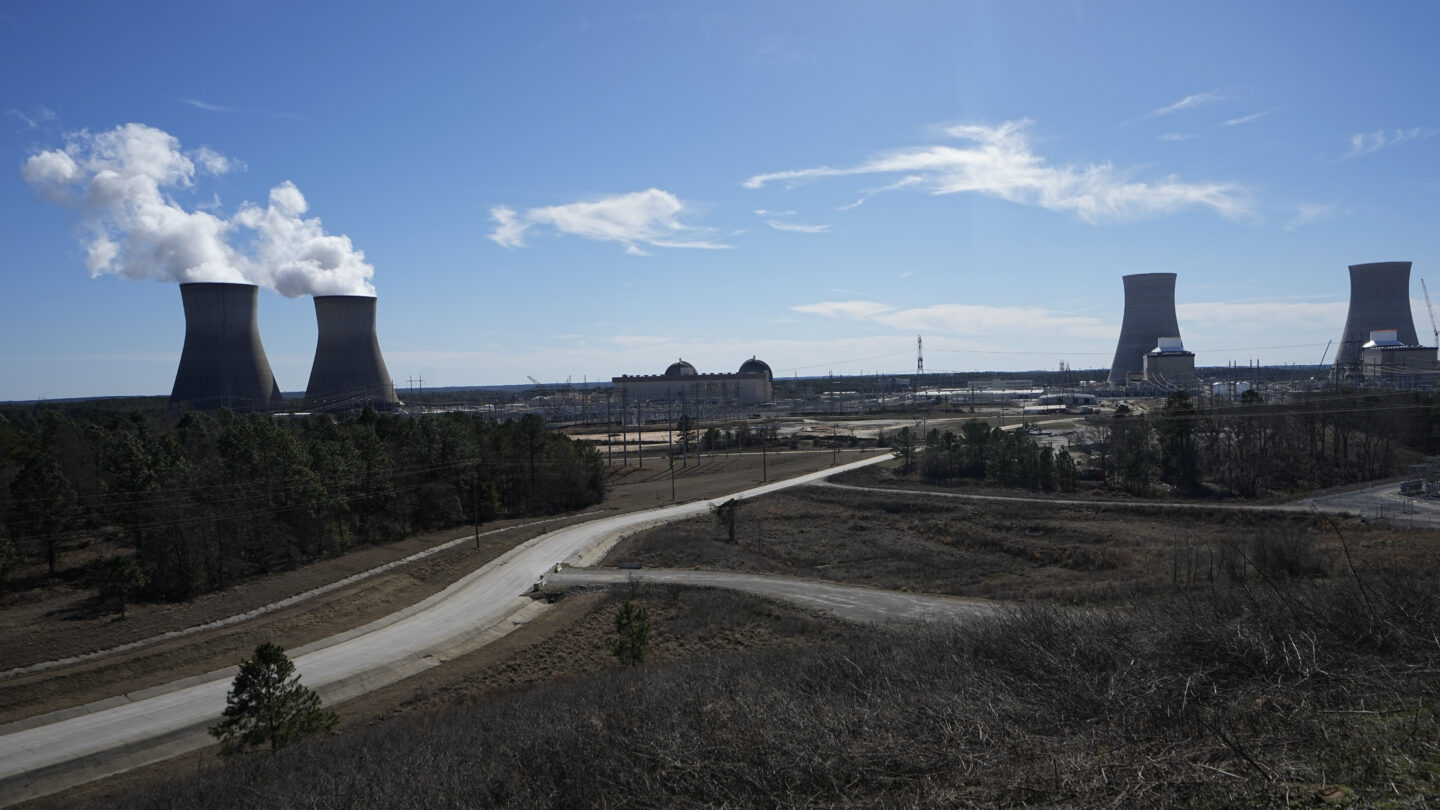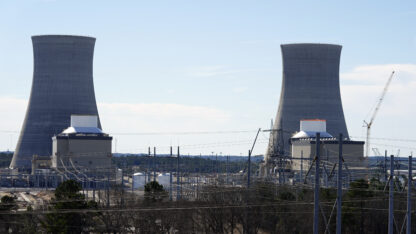Second new Georgia reactor begins splitting atoms in key step to making electricity

A nuclear power plant in Georgia has begun splitting atoms in the second of its two new reactors, Georgia Power said Wednesday, a key step toward providing carbon-free electricity.
The unit of Atlanta-based Southern Co. said operators reached self-sustaining nuclear fission inside the reactor at Plant Vogtle, southeast of Augusta. That makes the heat that will be used to produce steam and spin turbines to generate electricity.
Plant Vogtle’s Unit 4 is now supposed to start commercial operation sometime in the second quarter of 2024, or between April 1 and June 30. The utility earlier this month announced a delay past an earlier deadline of March 30 because of vibrations found in a cooling system.
Georgia Power said it is continuing with startup testing on Unit 4, making sure the reactor’s systems can operate at the intense heat and pressure inside a nuclear reactor. Georgia Power says operators will raise power and sync up its generator to the electric grid, beginning to produce electricity. Then operators will seek to gradually raise the reactor’s power to 100%.
Unit 3 began commercial operations last summer, joining two older reactors that have stood on the site for decades.
Regulators in December approved an additional 6% rate increase on Georgia Power’s 2.7 million customers to pay for $7.56 billion in remaining costs at Vogtle, That’s expected to cost the typical residential customer $8.95 a month, on top of the $5.42 increase that took effect when Unit 3 began operating.
The new Vogtle reactors are currently projected to cost Georgia Power and three other owners $31 billion, according to calculations by The Associated Press. Add in $3.7 billion that original contractor Westinghouse paid Vogtle owners to walk away from construction, and the total nears $35 billion.
The reactors were originally projected to cost $14 billion and be completed by 2017.
Units 3 and 4 are the first new American reactors built from scratch in decades. Each can power 500,000 homes and businesses without releasing any carbon. But even as government officials and some utilities are again looking to nuclear power to alleviate climate change, the cost of Vogtle could discourage utilities from pursuing nuclear power.
Georgia Power owns 45.7% of the reactors, with smaller shares owned by Oglethorpe Power Corp., which provides electricity to member-owned cooperatives; the Municipal Electric Authority of Georgia; and the city of Dalton.
Some Florida and Alabama utilities have also contracted to buy Vogtle’s power.








